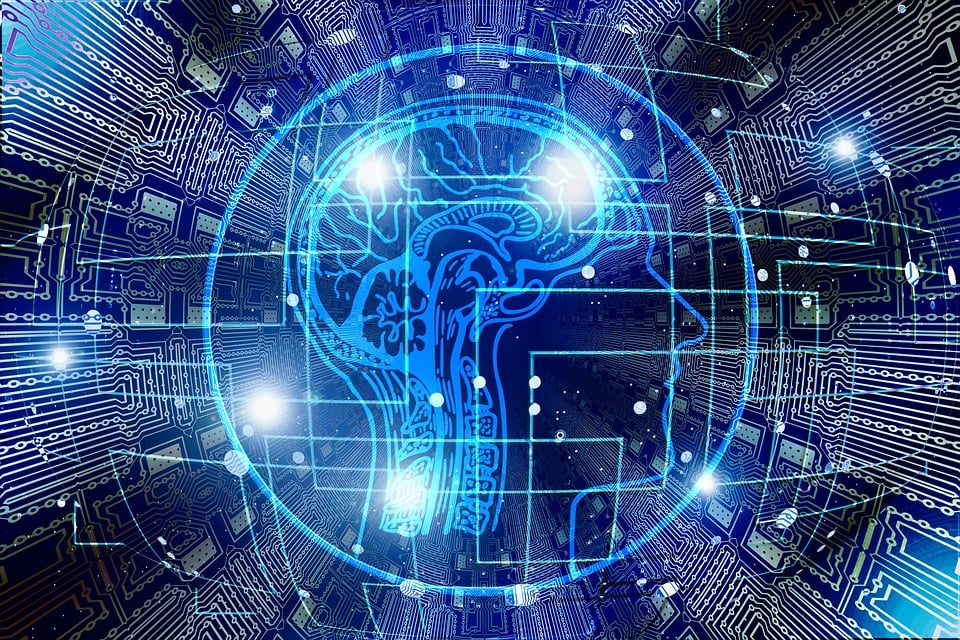 |
| photo by geralt from pixapay |
1- Introduction
In recent years, artificial intelligence (AI) has become one of the most revolutionary and quickly developing technologies. It has the ability to affect practically every part of our lives, from healthcare to education, money to entertainment. With enormous power, however, comes great responsibility. The application of AI poses ethical considerations as well as questions regarding its impact on society. This essay will look at the ethical issues surrounding AI and its development.
2- The Impact of AI on Society
AI has the potential to provide major societal advantages. It has the potential to increase production, improve efficiency, and lower costs. It may, however, displace human labor, which raises concerns about the impact on employment. AI has the potential to aggravate societal inequality by reinforcing pre-existing biases and discriminations. Facial recognition technology, for example, has been demonstrated to have trouble detecting people with darker skin tones, which can lead to racial profiling.
3- Transparency and Accountability
One of the key ethical considerations in the development and deployment of AI is transparency and accountability. It is crucial that AI systems are transparent and accountable, meaning that their workings and decision-making processes are clear and understandable. This is important for ensuring that AI systems are reliable and that they do not produce unjust or biased outcomes.
4- Bias and Discrimination
AI systems are only as unbiased as the data they are trained on. If the training data contains bias, the resulting AI system will also be biased. This can result in discrimination and unjust outcomes. Therefore, it is important to ensure that the training data is diverse and free from bias. Additionally, there must be checks and balances in place to identify and correct any biases that may arise in the AI system.
5- Privacy and Security
AI systems are capable of collecting and analyzing massive volumes of data. This poses privacy and security concerns. Data collected by AI systems can be sensitive and personal, therefore it's critical that it's kept safe from illegal access or usage. To ensure that AI systems are created with privacy and security in mind, strong laws must be in place.
6-Human Control
Human control is another ethical consideration in the creation of AI. It is critical to keep people in control of AI systems so that they do not become autonomous. Autonomous AI systems have the ability to make destructive decisions to humans or the environment. As a result, strong laws must be in place to ensure that AI systems are developed and used responsibly and ethically.
7- Conclusion
AI has the potential to bring about significant benefits to society. However, its development and deployment also raise important ethical considerations. Transparency, accountability, bias and discrimination, privacy and security, and human control are just some of the issues that must be addressed to ensure that AI is developed and used in a responsible and ethical manner. As AI continues to evolve, it is important that we remain vigilant and proactive in addressing these ethical considerations to ensure that the benefits of AI are realized in a responsible and sustainable way.
References:
- Jobin, A., Ienca, M., & Vayena, E. (2019). The global landscape of AI ethics guidelines. Nature Machine Intelligence, 1(9), 389-399. doi: 10.1038/s42256-019-0088-2
- Floridi, L., & Cowls, J. (2019). A unified framework of five principles for AI in society. Harvard Data Science Review, 1(1). doi: 10.1162/99608f92.8cd5501e
- Taddeo, M., & Floridi, L. (2018). How AI can be a force for good. Science, 361(6404), 751-752. doi: 10.1126/science.aat5991
- CATH, C., LUNN, K., MCNEILL, A., THOMSON, R., & JOHNSON, M. (2020). Moralisation in debates about the ethics of AI. Nature Machine Intelligence, 2(8), 378-380. doi: 10.1038/s42256-020-0201-9
- Mittelstadt, B. D., Allo, P., Taddeo, M., Wachter, S., & Floridi, L. (2016). The ethics of algorithms: Mapping the debate. Big Data & Society, 3(2), 2053951716679679. doi: 10.1177/2053951716679679
- Nissenbaum, H. (2001). How computer systems embody values. Computer, 34(3), 120-119. doi: 10.1109/2.910905
- Jobin, A., Ienca, M., & Vayena, E. (2020). Artificial intelligence: The global landscape of ethics guidelines. SSRN Electronic Journal. doi: 10.2139/ssrn.3410580
- Bryson, J. J. (2018). Ethical and unethical uses of artificial intelligence. AI & Society, 33(1), 1-3. doi: 10.1007/s00146-018-0812-7
- Bostrom, N. (2014). Superintelligence: Paths, dangers, strategies. Oxford University Press.
- Yeung, K., & Crawshaw, R. (2019). The governance of artificial intelligence: A framework for responsible and ethical AI. In M. Duwell, J. Huertas, & S. González (Eds.), The rise of legal analytics: The application of big data to legal decision-making and prediction (pp. 263-297). Springer. doi: 10.1007/978-3-030-04474-8_11
